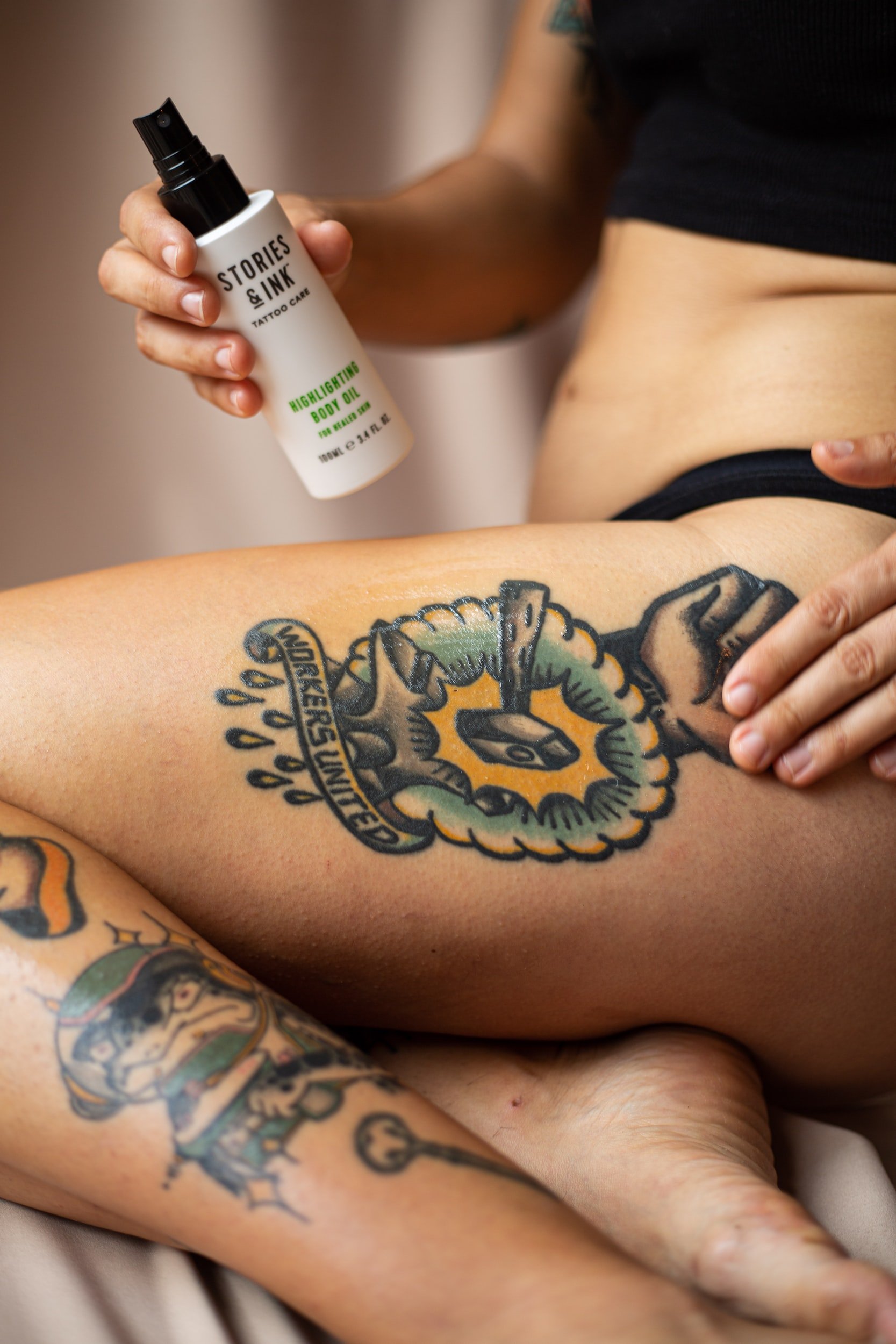Uncovering the Rules of Japanese Tattoo Culture
Japanese tattoos, or "irezumi," are known for their intricate designs, bold lines, and vibrant colors. These tattoos have a rich history and cultural significance in Japan, and they've gained popularity around the world in recent years.
But with this popularity comes controversy and questions about cultural appropriation. Are non-Japanese people allowed to get traditional Japanese tattoos? What are the rules for traditional Japanese tattoos? In this post, we'll be exploring the cultural significance, rules, and controversy surrounding traditional Japanese tattoos.
The Cultural Significance of Traditional Japanese Tattoos
Traditional Japanese tattoos, or "horimono," have a long and storied history in Japan. These tattoos, which often depict mythological creatures, nature scenes, and other iconic imagery, were originally associated with the criminal underworld. However, they've since gained mainstream acceptance and are now seen as a form of art and self-expression.
In Japanese tattoo culture, the tattoo artist, or "horishi," holds a special place. These artists are highly skilled and respected, and they often spend years apprenticing under a master tattooist before they are able to work on their own.
The meanings and symbolism behind traditional Japanese tattoo designs are also important to consider. For example, the dragon is a common subject in Japanese tattoos and is often seen as a symbol of power and strength. The cherry blossom, on the other hand, represents beauty and the fleeting nature of life.
The Rules and Etiquette of Traditional Japanese Tattoos
If you're considering getting a traditional Japanese tattoo, it's important to understand the rules and etiquette surrounding these tattoos. Here are a few things to keep in mind:
Respect the cultural significance of traditional Japanese tattoos: These tattoos have a rich history and cultural significance in Japan, and it's important to respect and understand the meanings and symbolism behind the designs.
Find a reputable tattoo artist: Traditional Japanese tattoos require a high level of skill and attention to detail, so it's important to find an artist who is well-trained and experienced in this style.
Follow the traditional tattoo process: Traditional Japanese tattoos are typically done by hand using a bamboo needle, and the process can be quite involved. Be prepared for multiple tattoo sessions and be respectful of the tattoo artist's time and skills.
Follow proper aftercare instructions: Proper aftercare is essential for any tattoo, but it's especially important for traditional Japanese tattoos due to their bold lines and bright colors. Follow your tattoo artist's aftercare instructions carefully to ensure your tattoo heals properly and looks its best.
Consequences of Breaking These Rules
It's important to note that breaking the traditional Japanese tattoo rules and etiquette can have serious consequences. In Japan, traditional Japanese tattoo artists, or "horishi," are highly respected and hold a special place in tattoo culture. These artists undergo years of training and apprenticeship, and they take their craft very seriously.
If you disrespect a traditional Japanese tattoo artist or the cultural significance of traditional Japanese tattoos, you may face serious consequences, including being banned from getting tattooed by that artist or being ostracized from the tattoo community.
It's also important to remember that traditional Japanese tattoos are deeply rooted in Japanese culture and history, and they hold a special meaning for many people. Disrespecting these tattoos or appropriating them for fashion or trend purposes can be seen as offensive and cultural appropriation.
In short, it's important to be respectful and understanding of traditional Japanese tattoo culture and to follow the rules and etiquette surrounding these tattoos. By doing so, you can ensure that you get a meaningful and culturally appropriate tattoo, and that you respect the traditions and values of Japanese tattoo culture.
The Controversy Surrounding Traditional Japanese Tattoos
As traditional Japanese tattoos have gained popularity around the world, there has been some debate over the appropriateness of non-Japanese people getting these tattoos. Some argue that these tattoos are a form of cultural appropriation, while others see them as a way to celebrate and appreciate Japanese culture.
It's important to note that tattoo culture, and traditional Japanese tattooing specifically, has always been a fluid and evolving art form. While it's always important to respect the cultural significance and meanings behind tattoo styles, it's also important to recognize the role of the tattoo industry in preserving and respecting traditional tattoo cultures.
Wrap Up!
Traditional Japanese tattoos, or "irezumi," are a rich and vibrant part of Japanese culture and tattoo history. From the cultural significance of tattoo artists to the rules and etiquette surrounding these tattoos, there's a lot to consider when it comes to traditional Japanese tattoo culture.
While there is some controversy surrounding non-Japanese people getting traditional Japanese tattoos, it's important to remember the fluid and evolving nature of tattoo culture and to respect the cultural significance of these tattoos. If you're considering getting a traditional Japanese tattoo, do your research, find a reputable tattoo artist, follow the traditional tattoo process, and be respectful of the cultural significance of these tattoos.
By following these guidelines, you can get a tattoo that not only looks beautiful, but also holds deep personal and cultural meaning.
Ready to bring Japanese art
to your skin?


